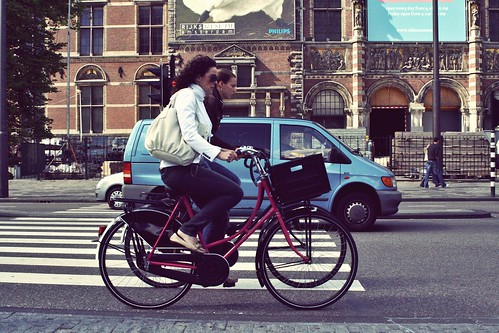This column first appeared in the Kitchener Post on June 21.
It was inevitable. The expert panel even predicted it. The media’s response to the provincial coroner’s Cycling Death Review released in June has been to focus on just one of the fourteen recommendations – namely, that Ontario investigate implementing a mandatory helmet law for cyclists of all ages. This review studied the deaths of 129 people on bicycles in Ontario from 2006-2010, to determine the leading causes of cycling-related fatalities and how they might be prevented.
The helmet law recommendation, and the ensuing media coverage, does disservice to the otherwise excellent report which declares that all cycling-related deaths are preventable. It’s not that wearing a helmet isn’t a good idea (it can be), but requiring one has unintended consequences, as even some members of the coroner’s expert panel point out in the report. Places like Australia that have implemented mandatory helmet laws have subsequently observed dramatic decreases in the number of cyclists, often with a negative impact on safety outcomes. One of the most well-understood factors in cyclist welfare is safety in numbers. This becomes much more difficult to achieve when barriers to cycling have been raised. This also leads to less healthy lifestyles; as Dr. Thomas J. DeMarco writes in the Canadian Medical Association Journal, “helmet laws save a few brains but destroy many hearts.”

(Photo: aiisuki via Flickr)
The Dutch have a cycling fatality rate that is less than half the rate we have here in Canada, despite the fact that almost no one wears helmets there. What’s their secret to safe cycling? An abundance of protected cycling infrastructure can take you anywhere and makes cruising on your bike as convenient as driving your car. Strong laws keep motorists responsible for keeping an eye out for cyclists and giving them adequate space. Safe cycling education is integrated into primary school, which most children travel to via bicycle. All this was part of a deliberate strategy to protect cyclists and make the Netherlands more resilient to fluctuating oil prices. Their success in encouraging 30% of all trips to be made by bicycle comes from actually preventing collisions, not by imagining that collisions have to be inevitable and that the best defence is a piece of foam and plastic.
Provincial action on eleven of the fourteen recommendations from the coroner’s review would nudge us closer to the safer Dutch model. These include a ‘complete streets’ strategy that would require roads to be designed to give pedestrians and cyclists equal consideration as well as development of an Ontario Cycling Plan. Traffic and municipal laws should be clarified to make laws concerning cycling easier to enforce, hopefully to include actual consequences for negligent driving. A long-overdue one-metre passing law is proposed that would obligate motorists to respect the space around cyclists. Education at schools and at all levels about cycling safely and inclusion of road sharing in driver training is also recommended. These steps would put Ontario on the road (or is it perhaps a complete street?) to a safer cycling future.
Let’s not repeat the failed Australian experiment with mandatory helmet laws or allow the helmet debate to sidetrack more effective measures. Instead, let’s help our provincial and municipal leaders implement the recommendations that will actually make a difference in creating safer streets and lead to more healthy and sustainable transportation.
Mike Boos is a member of the Tri-cities Transport Action Group (TriTAG) who still wears a helmet when he rides his bike, mostly because he thinks it makes his hair look better in the morning. His loving wife disagrees. Follow him on Twitter at @mikeboos
Read More »

